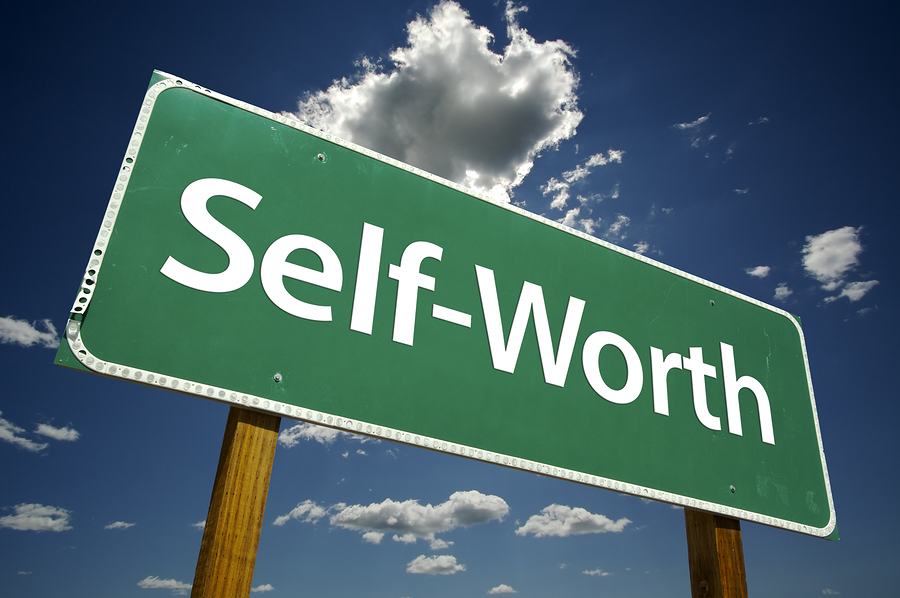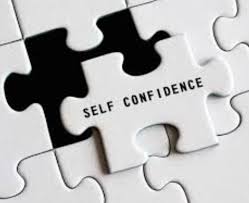Self Esteem
Self-esteem refers to a person’s overall sense or their value or worth. It can be considered a sort of measure of how much a person “values, approves of, appreciates, prizes, or likes him or herself”
Low self-esteem is characterized by a lack of confidence and feeling badly about oneself. People with low self-esteem often feel unlovable, awkward, or incompetent.
Various factors believed to influence our self-esteem include:
- Genetics
- Personality
- Life experiences
- Age
- Health
- Thoughts
- Social circumstances
- The reactions of others
- Comparing the self to others

Behaviours exhibited by people with poor self image or esteem include:
- Doubting their skills
- Feeling ashamed or embarrassed
- Believing they will always fail
- Blaming other people
- Poor boundary setting
- Avoiding social engagement
- Hurting others to feel better about themselves
- Avoiding compliments
Sometimes, people with self esteem and self image issues can have physical symptoms, including:
- Digestive issues with no identifiable cause
- Headaches
- Back pain from poor posture
- Insomnia
An important note is that self esteem is not fixed. It is malleable and measurable, meaning we can test for and improve upon it.

Self esteem can block virtually all other areas of life from moving forward productively. Poor self-esteem can manifest in bad relationships, dead-end career performance, and even physical health problems. Because unrealistic self-image—including low self-esteem—is by definition not based in reality, self-esteem problems can impact anyone from high-performing CEOs to homeless people and everyone in between. The good news (yes, there’s good news!) is that having a crisis of self-confidence often has much more to do with what is going on internally than externally; so regardless of whatever else is going on in your life, there is probably room for improvement in this area.
It Becomes A Self-Fulfilling Prophecy
Another horrible thing about self-esteem problems is that if left unchecked, they tend to get progressively worse. Over time, people with bad self-image can become resistant to compliments and accustomed to beating themselves up, both of which contribute to even worse sense of self. It’s a vicious cycle and a self-fulfilling prophecy: you feel bad, so you stop doing things that make you feel better or noticing positive feedback, which makes you feel even worse and less likely to climb out of the hole. People with low self-esteem may find themselves in toxic or abusive romantic relationships, lacking in friends, struggling with unwanted impulses, or mistreated at work—all of which reinforce negative feelings. Trying to fix self-confidence problems with surface solutions like unrealistic mantras or a denial of emotions usually leads to a worsening of symptoms, too. So if self-esteem problems are so destructive and difficult to solve, what’s an unconfined person supposed to do in this situation?
How can hypnotherapy help treat low self esteem?
This is where therapy can come in. Unlike well-meaning friends and family, a therapist can actually help you identify what the real problems are -rather than commiserating or just letting you vent- and can help you discover why poor self-esteem seems to be something you’re stuck on. To improve self-esteem, we first need to come to terms with the origins and function of these deeply negative emotions. Where has the low self-esteem come from? Is beating yourself up secretly serving you some purpose that you may not even be aware of?
Life is too short to go through it with heavy self-defeating pain. Hypnotherapy can help you learn ways to manage negative thoughts, identify and correct negative thinking patterns, and help you come up with ways to carry out positive change.

Further Reading
8 Steps to Improving Your Self-Esteem
What is the story you tell yourself?
When it comes to your self-worth, only one opinion truly matters — your own. And even that one should be carefully evaluated; we tend to be our own harshest critics.
Glenn R. Schiraldi, Ph.D, author of The Self-Esteem Workbook, describes healthy self-esteem as a realistic, appreciative opinion of oneself. He writes, “Unconditional human worth assumes that each of us is born with all the capacities needed to live fruitfully, although everyone has a different mix of skills, which are at different levels of development.” He emphasizes that core worth is independent of externals that the marketplace values, such as wealth, education, health, status — or the way one has been treated.
Following are eight steps you can take to increase your feelings of self-worth.
1. Be mindful.
We can’t change something if we don’t recognize that there is something to change. By simply becoming aware of our negative self-talk, we begin to distance ourselves from the feelings it brings up. This enables us to identify with them less. Without this awareness, we can easily fall into the trap of believing our self-limiting talk, and as meditation teacher Allan Lokos says, “Don’t believe everything you think. Thoughts are just that — thoughts.”
As soon as you find yourself going down the path of self-criticism, gently note what is happening, be curious about it, and remind yourself, “These are thoughts, not facts.”

2. Change the story.
We all have a narrative or a story we’ve created about ourselves that shapes our self-perceptions, upon which our core self-image is based. If we want to change that story, we have to understand where it came from and where we received the messages we tell ourselves. Whose voices are we internalizing?
“Sometimes automatic negative thoughts like ‘you’re fat’ or ‘you’re lazy’ can be repeated in your mind so often that you start to believe they are true,” says Jessica Koblenz, Psy.D. “These thoughts are learned, which means they can be unlearned. You can start with affirmations. What do you wish you believed about yourself? Repeat these phrases to yourself every day.”
Thomas Boyce, Ph.D., supports the use of affirmations. Research conducted by Boyce and his colleagues has demonstrated that “fluency training” in positive affirmations (for example, writing down as many different positive things you can about yourself in a minute) can lessen symptoms of depression as measured by self-report using the Beck Depression Inventory. Larger numbers of written positive statements are correlated with greater improvement. “While they have a bad reputation because of late-night TV,” Boyce says, “positive affirmations can help.”
3. Avoid falling into the compare-and-despair rabbit hole.
“Two key things I emphasize are to practice acceptance and stop comparing yourself to others,” says psychotherapist Kimberly Hershenson, LMSW. “I emphasis that just because someone else appears happy on social media or even in person doesn’t mean they are happy. Comparisons only lead to negative self-talk, which leads to anxiety and stress.” Feelings of low self-worth can negatively affect your mental health as well as other areas in your life, such as work, relationships, and physical health.
4. Channel your inner rock star.
Albert Einstein said, “Everybody is a genius. But if you judge a fish by its ability to climb a tree, it will live its whole life believing that it is stupid.” We all have our strengths and weaknesses. Someone may be a brilliant musician, but a dreadful cook. Neither quality defines their core worth. Recognize what your strengths are and the feelings of confidence they engender, especially in times of doubt. It’s easy to make generalizations when you “mess up” or “fail” at something, but reminding yourself of the ways you rock offers a more realistic perspective of yourself.
Psychotherapist and certified sex therapist Kristie Overstreet, LPCC, CST, CAP, suggests asking yourself, “Was there a time in your life where you had better self-esteem? What were you doing at that stage of your life?” If it’s difficult for you to identify your unique gifts, ask a friend to point them out to you. Sometimes it’s easier for others to see the best in us than it is for us to see it in ourselves.
5. Exercise.
Many studies have shown a correlation between exercise and higher self-esteem, as well as improved mental health. “Exercising creates empowerment both physical and mental,” says Debbie Mandel, author of Addicted to Stress, “especially weight lifting where you can calibrate the accomplishments. Exercise organizes your day around self-care.” She suggests dropping a task daily from your endless to-do list for the sole purpose of relaxation or doing something fun, and seeing how that feels. Other forms of self-care, such as proper nutrition and sufficient sleep, have also been shown to have positive effects on one’s self-perception.
6. Do unto others.
Hershenson suggests volunteering to help those who may be less fortunate. “Being of service to others helps take you out of your head. When you are able to help someone else, it makes you less focused on your own issues.”
David Simonsen, Ph.D., LMFT, agrees:
“What I find is that the more someone does something in their life that they can be proud of, the easier it is for them to recognize their worth. Doing things that one can respect about themselves is the one key that I have found that works to raise one’s worth. It is something tangible. Helping at a homeless shelter, animal shelter, giving of time at a big brother or sister organization. These are things that mean something and give value to not only oneself, but to someone else as well.”
There is much truth to the fact that what we put out there into the world tends to boomerang back to us. To test this out, spend a day intentionally putting out positive thoughts and behaviors toward those with whom you come into contact. As you go about your day, be mindful of what comes back to you, and also notice if your mood improves.

7. Forgiveness.
Is there is someone in your life you haven’t forgiven? An ex-partner? A family member? Yourself? By holding on to feelings of bitterness or resentment, we keep ourselves stuck in a cycle of negativity. If we haven’t forgiven ourselves, shame will keep us in this same loop.
“Forgiving self and others has been found to improve self-esteem,” says Schiraldi, “perhaps because it connects us with our innately loving nature and promotes an acceptance of people, despite our flaws.” He refers to the Buddhist meditation on forgiveness, which can be practiced at any time: “If I have hurt or harmed anyone, knowingly or unknowingly, I ask forgiveness. If anyone has hurt or harmed me, knowingly or unknowingly, I forgive them. For the ways I have hurt myself, knowingly or unknowingly, I offer forgiveness.”
8. Remember that you are not your circumstances.
Finally, learning to differentiate between your circumstances and who you are is key to self-worth. “Recognizing inner worth, and loving one’s imperfect self, provide the secure foundation for growth,” says Schiraldi. “With that security, one is free to grow with enjoyment, not fear of failure — because failure doesn’t change core worth.”
We are all born with infinite potential and equal worth as human beings. That we are anything less is a false belief that we have learned over time. Therefore, with hard work and self-compassion, self-destructive thoughts and beliefs can be unlearned. Taking the steps outlined above is a start in the effort to increase self-worth, or as Schiraldi says, to “recognize self-worth. It already exists in each person.”
